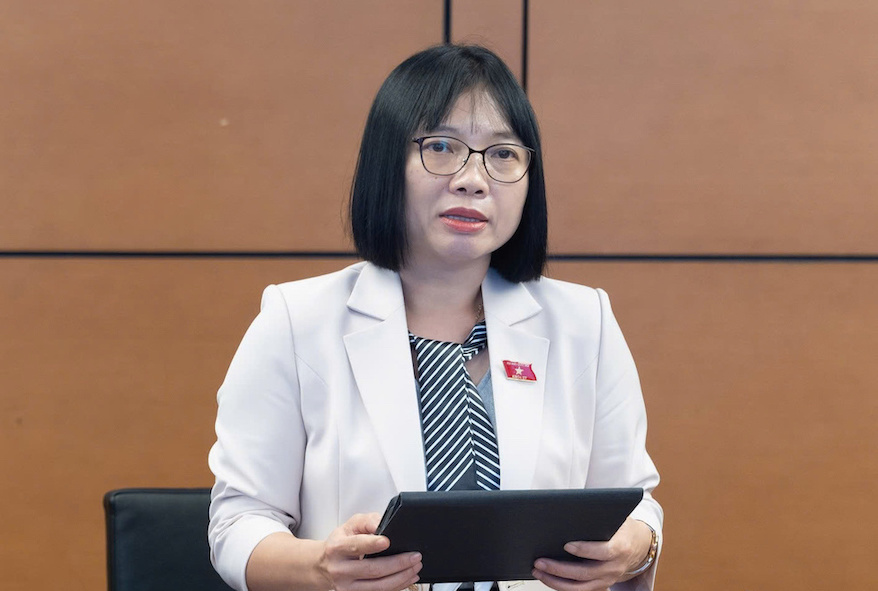In the draft Decree regulating salary and allowance policies for teachers to collect comments, the Ministry of Education and Training proposed that all teachers will receive a "special salary coefficient".
In particular, the Ministry proposed to apply a rate of 1.25 to public preschool teachers and 1.15 to general education teachers. Specific coefficients are only calculated with salaries, not applied to allowances. Thus, teachers' salaries will increase from 0.8 - 3.7 million VND per month and the monthly budget will be 1,652 billion VND.

Contributing opinions to the draft, the Ministry of Home Affairs said that, based on the Party's viewpoints and policies on reforming salary policies, legal regulations and the opinions of the National Assembly Party Committee (on amending and abolishing financial mechanisms and special income in state administrative agencies and units at the central level), the regulation of special salary coefficients for teachers has no political or legal basis.
The Ministry of Home Affairs proposes not to stipulate a specific salary coefficient for teachers because the specific factor of the profession is that vocational allowances have been adjusted up according to Resolution No. 71-NQ/TW. This is to avoid disrupting the design of the current salary system and creating a new unreasonable view of wages and income when comparing correlation with civil servants and public employees in other sectors and professions.
The 2025 Teachers' Law is a new legal basis and must be given absolute priority
Speaking to Lao Dong Newspaper, delegate Nguyen Thi Viet Nga (Hai Phong Delegation) said that the Ministry of Home Affairs' opinion that "there is no legal and political basis" to stipulate a special salary coefficient for teachers is no longer appropriate for 2 reasons.

Firstly, the legal basis for building policies for teachers is no longer documents before 2025, but must be the 2025 Teachers Law, a law with high legal effect, issued by the National Assembly.
Secondly, on the political basis, we have had the latest resolution, Resolution 71-NQ/TW (2024) on breakthrough development of education and training, which clearly states the task of having "specific and outstanding policies" for education and training and the teaching staff.
"Thus, both the political and legal basis support the design of a salary policy that is more specific and superior to teachers. The Ministry of Home Affairs' continued citation of old regulations related to civil servant salary tables is not updated in the spirit of the new law, which is not in line with the principle of priority in applying the new law" - Ms. Nga said.
Speaking more about the Law on Teachers, delegate Nguyen Thi Viet Nga said that this is a new policy, a new orientation, and a direct legal basis for the Ministry of Education and Training to develop a Decree according to the requirements of the law.
Citing the provisions of Clause 3, Article 156 of the Law on Promulgation of Legal Documents: "In cases where legal documents issued by the same agency have different regulations on the same issue, the provisions of the legal document issued later shall apply," Ms. Nga said: "The 2025 Law on Teachers has created a completely new legal framework. Previous regulations related to salary reform or civil servant salary table - if different - cannot be cited to deny the spirit of the new law".
There needs to be a specific policy on teachers' salaries
In addition to the allowance coefficient, delegate Nguyen Thi Viet Nga said that it is necessary to have a specific salary policy for teachers for 3 reasons:
First, regarding practical and urgent requirements, Ms. Nga said that the teaching staff, especially preschool teachers, teachers in mountainous and disadvantaged areas... are facing a serious shortage. Current income no longer meets the minimum living standard.
Second, regarding strategic requirements, according to the delegate, it is impossible to expect "basic and comprehensive innovation in education" if we do not start with proper investment in the teaching staff.
Third, due to legal requirements, the Law on Teachers has established a special position for teachers, assigning the Government to regulate the classification of teachers' salaries at the highest level. This is a policy decided by the National Assembly and must be implemented by Government agencies.
"Thus, the Ministry of Education and Training is doing its job properly, within its authority, and within the legislative process when drafting the Decree based on the latest and highest legal basis" - the Vietnamese delegate analyzed.
However, the female delegate also raised the issue of how much special allowances need to be carefully calculated. This requires the coordination of the Ministry of Finance in the assessment and assessment of specific impacts on the national budget.
"The teaching force is very large, accounting for a large number of civil servants nationwide, so it needs to be carefully calculated" - the delegate said.
National Assembly delegate Pham Van Hoa (Dong Thap delegation) also supported the proposal of the Ministry of Education and Training on a specific coefficient as well as the policy of bringing the highest teacher salary in the administrative career salary scale system.
In many speeches in front of the National Assembly hall, on the corridor, the delegate affirmed his view that when teachers have good salaries, they will focus on teaching expertise and improve teaching quality. This will also help minimize extra teaching and learning, especially in person.











